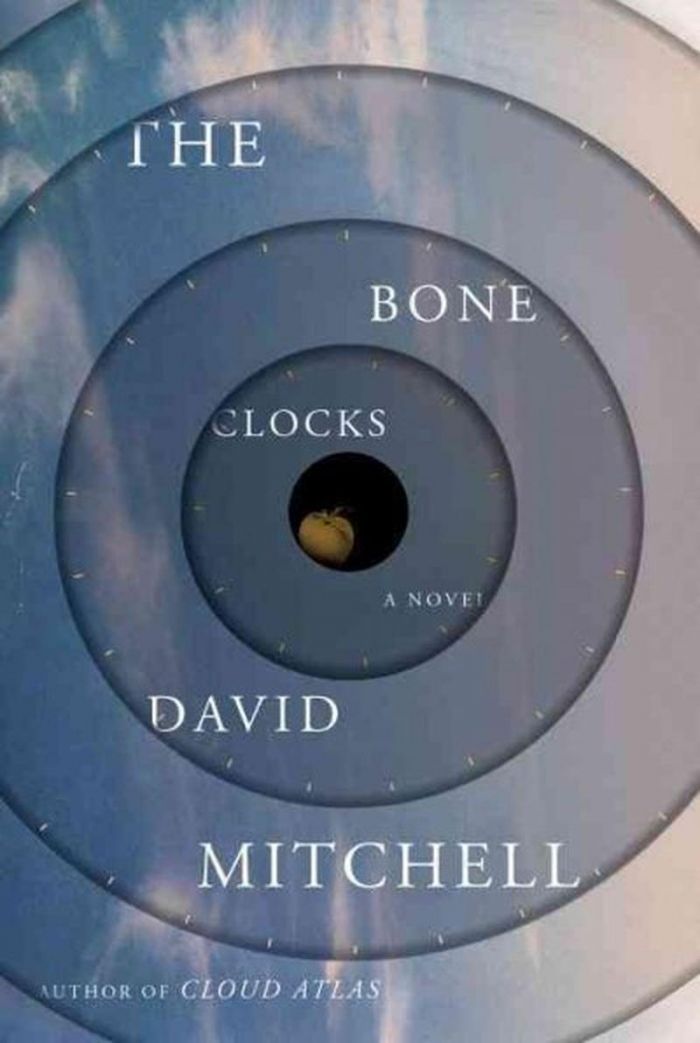The Bone Clocks by David Mitchell (Review)

My wife read this one first, liked it a lot, and then kept after me to read it, too. It took a few months before I finally cracked it open, but I’m glad I did. With The Bone Clocks, David Mitchell has written a brilliant modern fantasy that weaves in various genre tropes (e.g., psychic warriors, mysterious cults, bizarre phenomena) without ever feeling like a mere fantasy novel. That’s because his focus isn’t on simply checking the usual genre boxes (which he certainly does), but rather, on telling a fascinating and ultimately poignant story with those things woven skillfully throughout.
As it skips around in time, from the ’80s to the mid-21st century, and between characters, The Bone Clocks gives us various perspectives on the life of Holly Sykes, a young woman blessed/cursed with psychic powers. These powers eventually lead to Sykes and her family getting caught up in an age-old war between two groups of immortals, the Horologists and the Anchorites.
To say more than that would be venturing into spoiler territory, though that might be an impossibility because of the density of Mitchell’s timelines and narratives. Even if it doesn’t all make sense at the time, Mitchell is a master of tying things together, which fills the book with delightful little “a ha!” moments.
On a nerdy note, I particularly enjoyed how Mitchell described the various psychic powers and phenomena that appear throughout the book. While there are some just plain cool action sequences, Mitchell often takes a subtler route that reminded me of Haruki Murakami. He’ll throw out odd little details that seem trivial and commonplace in the moment, but their cumulative effect adds a layer of magical realism that always proves intriguing.